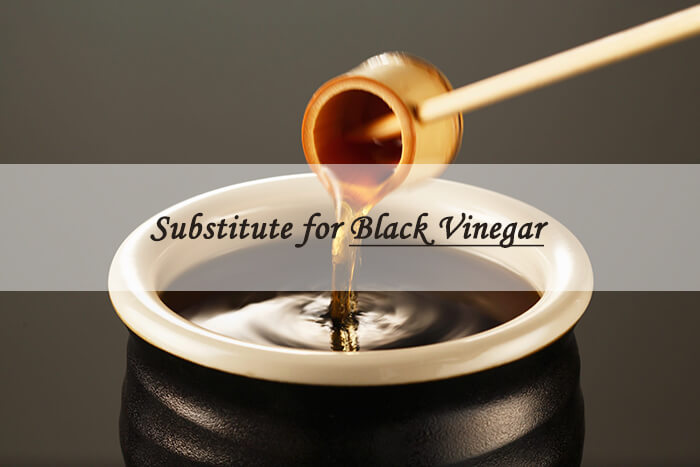If you’ve ever tasted Asian cuisine, you’ve most likely tasted black vinegar. This secret sauce has a spicy, smoky flavor that sticks to your taste buds. Its depth of flavor is nowhere near plain vinegar.
But some people find black vinegar too sharp and prefer alternatives, and that’s why we’re here!
There are several black vinegar substitutes you can find easily. Although they don’t have the exact taste, they’ll give your food a distinctive flavor and add the Asian style of cuisine.
Let’s discover the ten most common substitutes for this Asian secret.
Table Of Contents
Things About Black Vinegar You Should Know
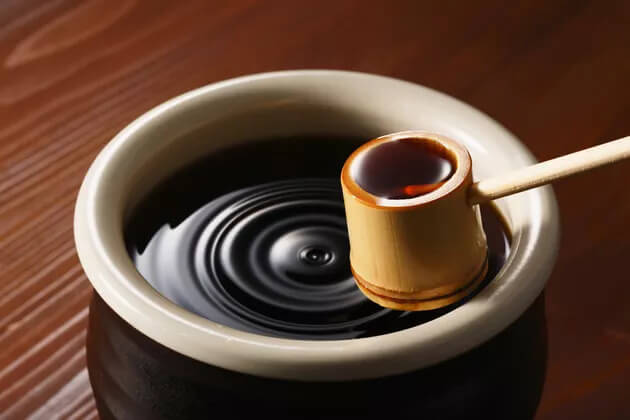
How Black Vinegar is Made
Black vinegar is made from millet, rice, or sorghum and aged in a container of salt and water for about six months. This period allows the vinegar to acquire its tangy flavor, common in Chinese cuisine.
Black vinegar undergoes the same manufacturing process as other types of vinegar.
The basic steps are mixing grain or fruit and yeast. Once that is done, alcohol converts into ethanol which is changed to acetic acid by the yeast.
Flavor
Its complex flavor gives you hints of caramel, apple cider, and molasses all at once. You can use it to make a variety of dishes from stir-fries to soups.
Benefits
Apart from its bold taste, black vinegar is also believed to have health benefits. Some believe it helps improve blood circulation, regulate blood sugar levels, and boost the immune system.
What Can You Substitute for Black Vinegar
If you’re looking for alternatives to black vinegar, there are a couple of options that you might try.
1. Sherry Vinegar
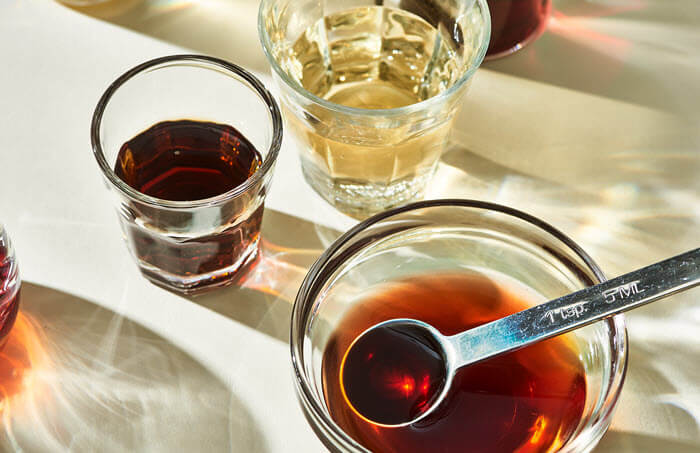
Sherry vinegar is an alternative vinegar made in the province of Cadiz in Spain.
It is made from Sherry wine and naturally fermented to give a distinct vinegar taste and dark color. This fruity vinegar has a complex flavor that’s crisp and acidic.
The depth of flavor in sherry rice depends on how long it ages. Normal sherry vinegar is fermented for about six months. Reserva sherry is aged for two years, while Gran Reserva is aged for more than 10 years.
This kind of vinegar is an excellent substitute for black vinegar, particularly in salads such as Caprese salad. However, it may not be available in every supermarket, and the aged ones are pricey.
Use 1 tablespoon of sherry vinegar for every 1 tablespoon of black vinegar.
2. Balsamic Vinegar
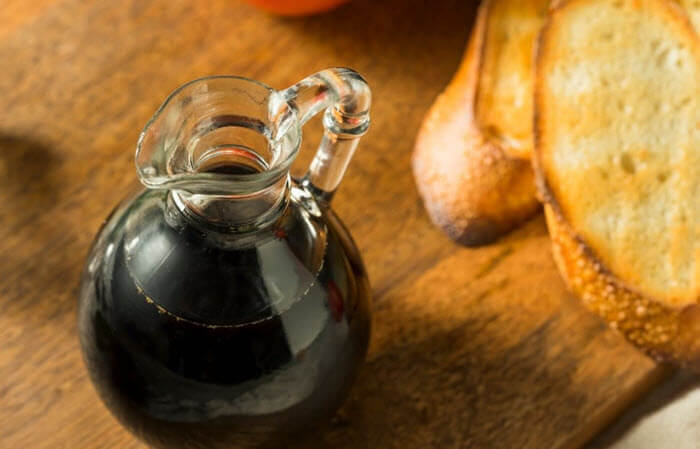
Balsamic vinegar is a more common vinegar, although it still fetches a higher price margin.
Balsamic vinegar has the same dark color as black vinegar, but with a sweeter flavor. It is made from crushed grape must, a fresh juice of grapes, and all its parts (skin, seeds, stems, etc.).
The use of this kind of vinegar was first recorded in Italy in 1046 when the Holy Roman Emperor was given a bottle of balsamic vinegar. Its production is not complex but was known to take quite some time during aging.
To make this type of vinegar, the grape juice is extracted from grapes and boiled down to a concentrate. It is then fermented and aged for a minimum of about 12 years. This was the process used by the original makers, and anything that didn’t come from Italy was not considered ‘legit.’
However, typical grocery stores have balsamic vinegar made differently, and takes a few months. It is still the same balsamic vinegar with rich flavors and varying uses from easy salad dressings to chicken marinades.
Use a 1:2 ratio (1 tablespoon of balsamic vinegar for every 2 tablespoons of black vinegar) to maintain the sweetness.
3. Apple Cider Vinegar

As its name suggests, this vinegar recipe begins with apples. But before we prepare, it is worth noting apple cider vinegar is not apple cider. Apple cider contains alcoholic while apple cider vinegar does not.
The vinegar is bright with flavor and has a tangy acidity that won’t take the spotlight of the entire dish.
Like black vinegar, it has a nice mix of sweetness and acidity, perfect for marinades, meatballs, salads, and slow cooker meals.
If you like the fruity flavors of your vinegar, then this should be your go-to black vinegar alternative. In terms of replacement ratios, use 1:1.
4. Worcestershire Sauce
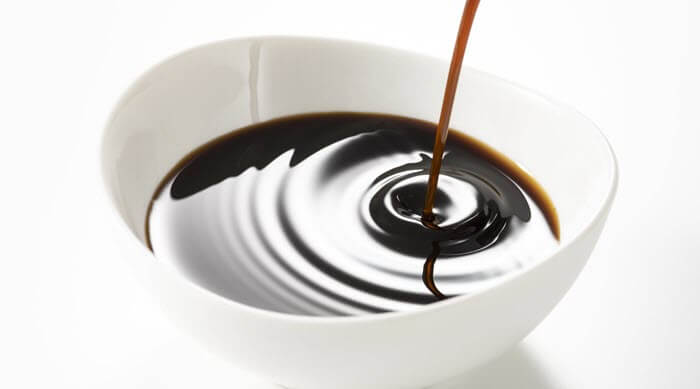
Worcestershire sauce has roots in Britain from the city of Worcestershire, England where it was first produced. But today’s sauce has different varieties and flavors, from savory to tangy taste.
This sauce is an ideal alternative to black vinegar as it can be used in Asian soups, chicken broths, and any meal that needs a dose of sweetness and acid at the same time.
The amount of umami in Worcestershire sauce is similar to that of fish sauce and soy sauce.
For ratio purposes, use 1 ½ tablespoon of Worcestershire sauce for 1 tablespoon of black vinegar.
5. Rice Vinegar
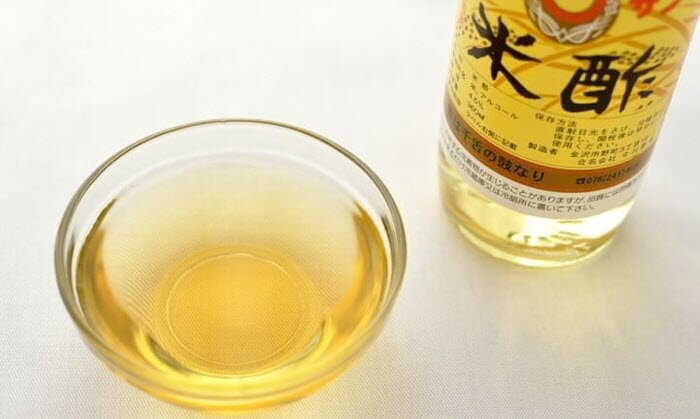
Rice vinegar is another common substitute for black vinegar due to its origin in Japan. It is made from fermented rice wine and is known for its low acid content. It is also gluten-free.
While the typical white vinegar does not have flavor-enhancing ingredients, some varieties have ginger, orange peel, and sometimes sugar.
Rice vinegar is best for several dishes, including marinades, sauces, and pickling mixtures. Plus, you can also add it to tofu dishes and salad.
Use a 2:1 ratio (2 tbsp of rice vinegar = 1 tbsp of black vinegar.)
6. White Vinegar
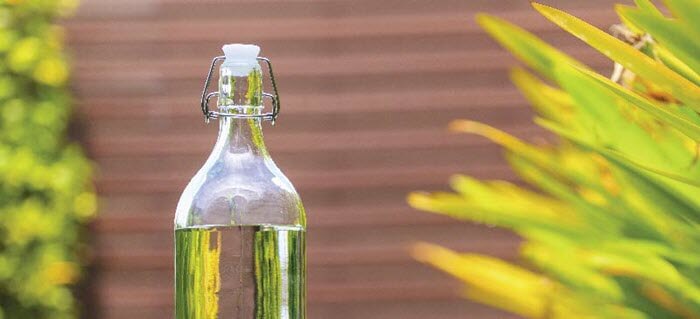
Apart from being popular, white vinegar is one of the lightest types of vinegar on this list. It is made from fermented alcohol and is known for its high acidity.
White vinegar can be an excellent black vinegar replacement, provided you’re okay with the slight flavor and color change.
It has a refreshing flavor that marries perfectly with dishes such as pickled vegetables, fruit salad, etc.
Further reading: White Vinegar vs Rice Vinegar: What’s the Difference?
For 1 tbsp of black vinegar, you need to use ½ tbsp of white vinegar.
7. Red Wine Vinegar
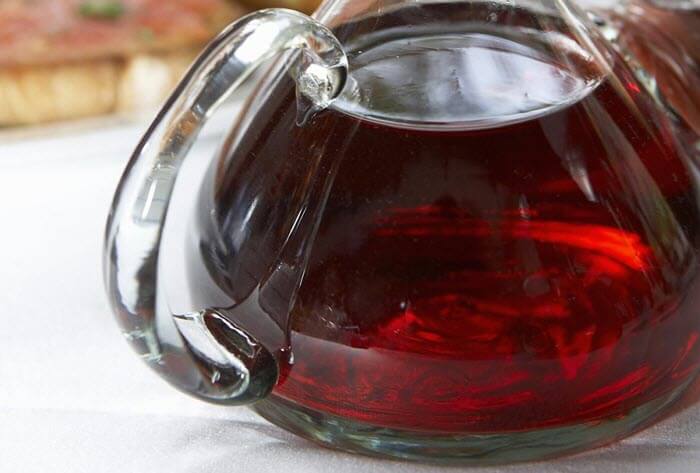
Red wine vinegar is another alternative made from red wine. The exact process is different for each manufacturer although it involves aging wine in red oak barrels for a few months.
During the aging process, the wine slowly turns into vinegar through the conversion of ethanol into acetic acid.
Red wine vinegar has an acidic flavor and can be used in marinades, salad dressings, or soups.
Use a 1:2 ratio (1/2 tbsp of red wine vinegar equals 1 tbsp of black vinegar.)
8. Champagne Vinegar
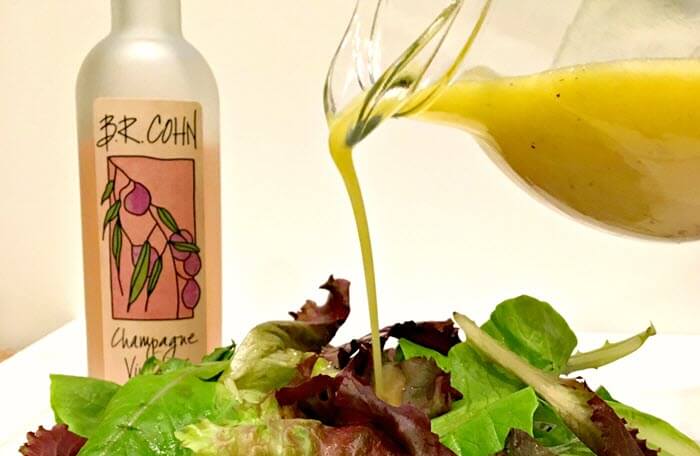
The biggest misconception about champagne vinegar is that it’s made from Champagne. This type of vinegar is made from Chardonnay grapes and Pinot Noir.
Champagne vinegar is called Champagne because it uses the same ingredients used to make the classy alcoholic beverage.
Champagne vinegar has less sweetness than black vinegar and is milder than most alternatives. This makes it a great addition to light chicken, fruit, and fish dishes.
For replacement with black vinegar, use 2 ½ tablespoons of champagne vinegar for 1 tablespoon of black vinegar.
9. Malt Vinegar

Malt vinegar can be a great black vinegar replacement, it’s known for the nutty, rich flavor. It comes from grains of barley fermented in a complex process to make vinegar.
This vinegar has a dark color and is a common ingredient in Great Britain for making fish and chips.
You can use malt vinegar for making a variety of dishes, including noodles, and salads, among others. It is the kind of vinegar that can pop your dish with a few pints.
Use a 1: 1 ratio (for 1 tbsp of black vinegar, use the same amount.)
Further reading: 13 Best Malt Vinegar Substitutes
10. Date Vinegar
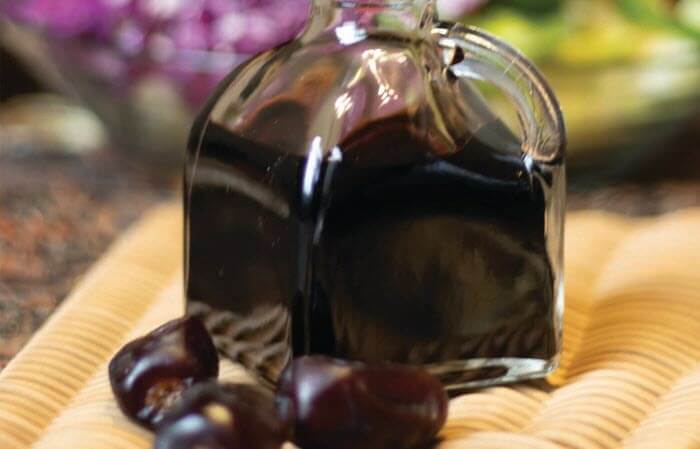
Also known as date syrup, date vinegar is a sweet alternative to black vinegar as it has a fruit base. It is made from fermented dates, and can also include some flavor-enhancing herbs and spices.
Date vinegar is a common ingredient in the Middle East due to the abundance of dates, and it is the oldest type of vinegar recorded in history. Date vinegar is mainly produced in Saudi Arabia, Iraq, and Iran.
Though an excellent substitute, date vinegar is not so common and has higher acidity than white vinegar.
Use 1 tablespoon of date vinegar for 2 tablespoons of black vinegar.
FAQs About Black Vinegar
Is black vinegar the same as balsamic vinegar?
Although they have the same color, consistency, and manufacturing process, balsamic vinegar is more syrupy and a bit tart than black vinegar.
Plus, balsamic vinegar is made from white grapes, while black vinegar is produced from sorghum or rice.
Is black vinegar the same as sweet vinegar?
They are not the same.
Sweetened vinegar has added flavorings and sugar to make it sweeter than the traditional black vinegar. It is mainly used in pork dishes and is not usually recommended as a solid alternative to black vinegar.
What’s the difference between white and dark vinegar?
Black vinegar is mildly acidic and has a bold taste associated with the black or brown rice grain fermentation process.
White wine vinegar is easily available and is a product of fermentation of grain alcohol.
Where to buy black vinegar?
Black vinegar is a common ingredient and readily available in grocery stores, supermarkets, and online stores.
If you don’t have any of these stores closed, you can from the array of alternatives listed in this guide.

